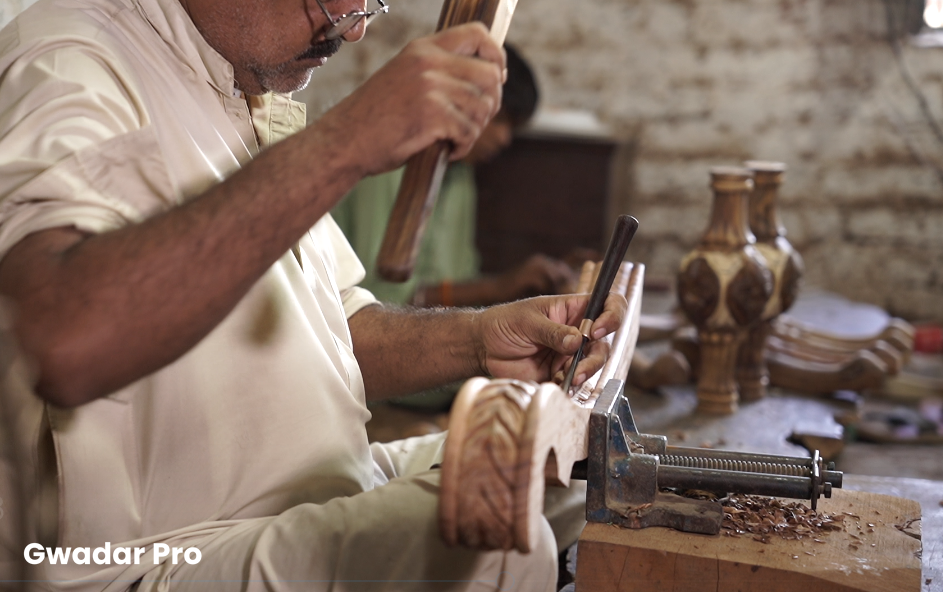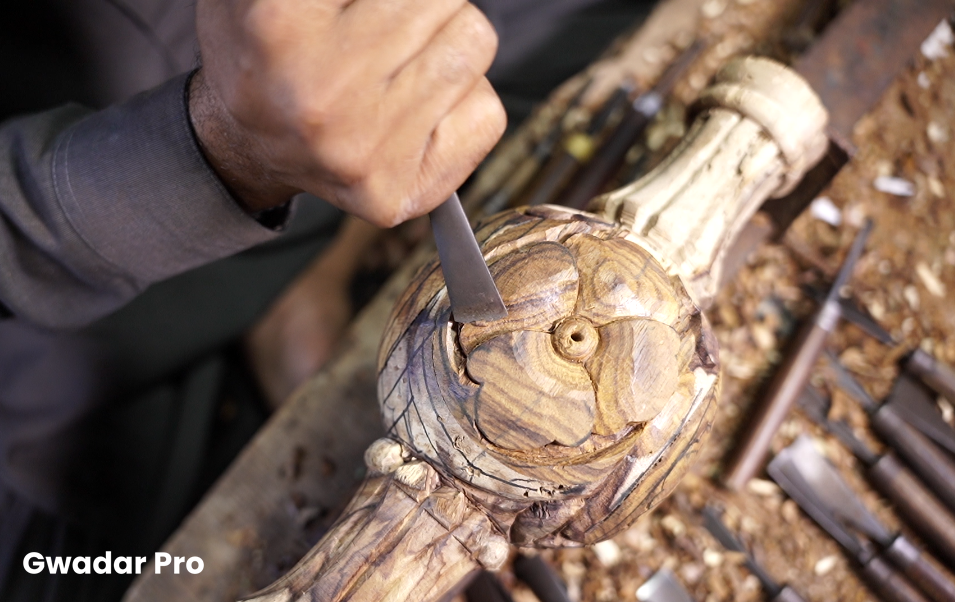Pakistan’s handmade furniture to tap a bigger market

Workers are making furniture. [photo/Gwadar Pro]
Chiniot, Nov.12(Gwadar Pro) - “There are two specialties of this furniture. First of all, it is made from Indian Rosewood and secondly, it is handmade furniture. The skills our craftsmen have and the designs are unique and couldn’t be found anywhere in the country,” said Bilal Shahzada, owner of Highlight Furniture Showroom in Chiniot.
Chiniot, an old city in Pakistan, is acknowledged for producing beautifully carved wood furniture and handicrafts. A large amount of Pakistan's furniture demand is met by Chinioti furniture.
Bilal Shahzada said that there are almost 500 furniture shops and 6000 small and big workshops here where furniture is manufactured. 60 % of people are connected with the furniture business directly or indirectly in Chiniot.
The Chinioti furniture is best known for the wood "Sheesham"(Indian Rosewood) that it used. According to an analysis done globally by taking samples of 100 different types of wood, this Indian Rosewood came at the third-best wood type in the world. It came third in the whole world in terms of beauty and strength.
“Indian Rosewood is strong. It can adjust itself according to the weather. When it’s winter, it swells due to humidity, while when it is summer season, it shrinks itself,” said Haider Ali, President, Furniture Manufacturing Association, Chiniot. He added, “if other wood is durable for 10 years, then this is durable for 100 years.”

A worker is carving furniture. [photo/Gwadar Pro]
However, local people began to feel worried as the price of this Indian Rosewood increased due to added taxes. “Before the price of wood was Rs 2220 but now it costs us Rs 4000 per square foot,” Haider Ali said, adding that tax will also be paid on woodcutting, wooden sheets and hardware as well, which may cause a downfall of this industry.
There was a time when Pakistani handmade furniture was leading the top furniture industries in the world, but now there’s growing concern among the industry practitioners here. “Around 300 of our workshops have been closed. If we do not pay any heed to this industry then this industry will be no more in the next 4 to 5 years,” Haider Ali said.
Now as an increasing number of young people moved to other cities to seek jobs, the furniture sector faces a shortage of good carpenters, and the people who are working here in Chiniot are not enough to fulfill the demand. “They get better wages by working for a company than in Chiniot,” said Qaiser Khan, a worker at Furniture Market, Chiniot.
In a furniture factory, its owner Tariq Ali called for innovation in the design of furniture as many designs are copying the European style. “Handmade things are linked to the culture of that country or area. Unless the culture of that people, area, city, and country was added to their thinking and traditional touch in it, the handmade product is useless.”

A piece of furniture work.[photo/Gwadar Pro]
Handmade furniture used to be exported to Australia, France, and many other countries in the past, but now there are few exports. As CPEC enters into a new phase and China becomes Pakistan’s largest trading partner besides being the second-largest export destination especially despite the pandemic this year, many furniture manufacturers eye the Chinese market.
“The export of furniture is going on but in a very minimal ratio and we can increase it. It is possible through exchanges by delegations,” said Bilal Shahzada. Like him, many hope for a quota in foreign exhibitions to showcase their works.
After the completion of the motorway linking Chiniot, the precious handcraft had turned into a business, and eventually, a commercial furniture market was established here. In this era, the furniture of Chiniot is recognized and known not only in Pakistan but the whole world. These handicraftmen are actively seeking a broader market. For example, some of them are turning to e-commerce to find a way out.
“Definitely, with the help of e-commerce, the whole world is increasing its business and exports, and people of Pakistan are taking interest in it in cities especially. We will focus on this and increase our business and do information exchange through e-commerce,” said Bilal Shahzada.




